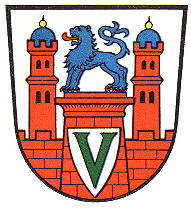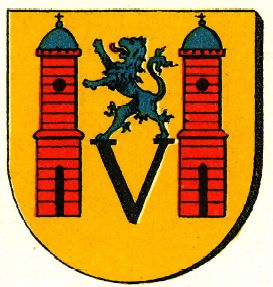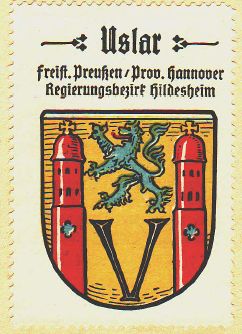Uslar: Difference between revisions
Knorrepoes (talk | contribs) m (Text replace - "'''Origin/meaning :'''<br/>" to "====Origin/meaning====") |
Knorrepoes (talk | contribs) m (Text replace - "|width="15%"|50 px|right |}" to "|width="15%"|50 px|right |}<seo title="Wappen, Gemeindewappen" />") |
||
| Line 3: | Line 3: | ||
|width="70%" align="center" |'''Heraldry of the World<br/>Civic heraldry of [[Germany]] - [[Deutsche Wappen|Deutsche Wappen (Gemeindewappen/Kreiswappen)]]''' | |width="70%" align="center" |'''Heraldry of the World<br/>Civic heraldry of [[Germany]] - [[Deutsche Wappen|Deutsche Wappen (Gemeindewappen/Kreiswappen)]]''' | ||
|width="15%"|[[File:Germany.jpg|50 px|right]] | |width="15%"|[[File:Germany.jpg|50 px|right]] | ||
|} | |}<seo title="Wappen, Gemeindewappen" /> | ||
Revision as of 18:45, 5 November 2012
| Heraldry of the World Civic heraldry of Germany - Deutsche Wappen (Gemeindewappen/Kreiswappen) |
USLAR
State : Niedersachsen
District (Kreis) : Northeim
Additions : 1974 Ahlbershausen, Allershausen, Bollensen, Delliehausen, Dinkelhausen, Eschershausen, Fürstenhagen, Gierswalde, Kammerborn, Offensen, Schlarpe, Schönhagen, Schoningen, Sohlingen, Vahle, Verliehausen, Volpriehausen, Wiensen
Origin/meaning
The arms are granted in 1935 and were slightly changed in shape and re-confirmed in 1952.
The arms are mainly based on the oldest seal of the city, which is known since the late 13th century. This seal showed a gate with two towers. Between the towers the so-called lion-monument in Braunschweig, built in 1166. The lion in the monument is taken from the Welfen dynasty, at the time Dukes of Braunschweig, and who also ruled Uslar.
A later seal, known from 1642 shows the same composition. The colours are known from the early 18th century, when also the small shield with the V (or Roman U) appears. At the time the towers were no longer church towers.
| The arms as shown in 1891 |
The arms in the Kaffee Hag albums +/- 1925 |
Literature : Stadler,1964-1971, 8 volumes; Ahrens, 1891



